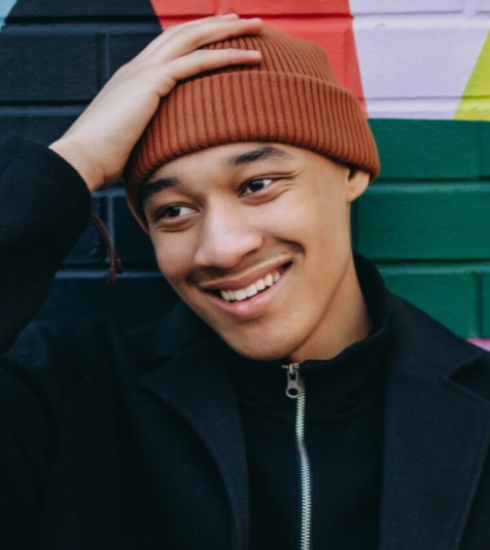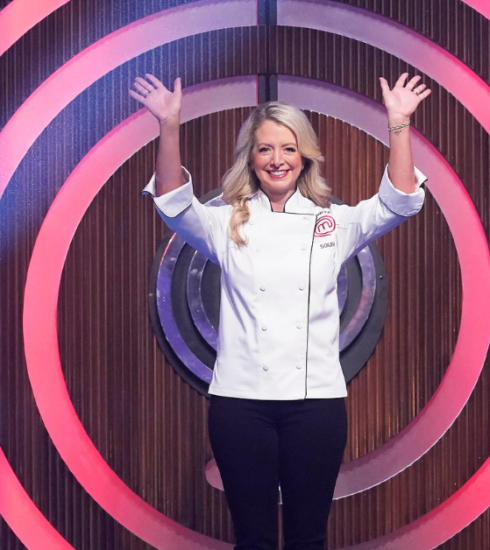Jessamyn Stanley is Bold, Unapologetic, and demonstrates the importance of Representation (Demo)
Jessamyn Stanley is our ancestor’s greatest dream. She is a bold and courageous Black and Queer woman living by her own rules. As an author and advocate, she uses her voice, image, and platform to encourage everyone to live authentically and to be fearless. We discussed how Yoga changed her life and helped her find the boldness and beauty inside and outside. She touched on social media and how she navigates the fickleness of it all. There is something poetic when you speak with someone who reminds you that accepting yourself is a daily process.
Cox: Jessamyn Stanley, you are creating waves and moving the culture forward with your personality, brand, and business. I want to know where you got this boldness.
Stanley: This boldness came from getting made fun of for so much of my life. That’s part of the growth for any of us who have felt self-conscious at one point or been bullied. Growing up, I felt so self-conscious that I was ashamed of myself. I mean that in every aspect of the word embarrassed.
When I was in graduate school, there was a shift for me. A friend told me I should try Yoga with her, which would change my life. Initially, I was hesitant because I thought Yoga was an activity that only white girls participated in. Funny enough, I tried it once in high school and absolutely hated it. But convinced me, and I went because I thought the worst thing that could happen was, I hate it again and never go back.
Cox: So, this second time around, what made you love it?
Stanley: Well, at first, I didn’t love it immediately. We wait to like or love something because it’s challenging. And on top of that, I was the only Black and bigger person in the class, so I felt very isolated. I wondered if I was doing the postures right, and they all seemed impossible. Even sitting and crossing my legs seem impossible.
This thought of something being impossible helped open my eyes to how much I have lived that way. I fell in love with Yoga because practicing it and fully committing to it in front of the mirror, and the people in the class led to letting go of my fear.

Cox: That’s beautiful to hear! Your social media presence has blown up and taken us by storm. How did that begin?
Stanley: People noticed when I started practicing Yoga at home and sharing it online. And this was the time before Instagram became as popular as now. So, I wanted to connect with people. There is a visibility issue in the Yoga space for people like myself, and I wanted to bring light to it.
I didn’t just want to inspire people to practice Yoga; I tried to encourage them to live authentically and honestly. Doing this really inspired me to do the same.
Cox: I love that you show a different side of fitness for Black people that don’t fit the stereotypical image we see on social media. Why do you think this is important in terms of representation?
Stanley: It’s important because when it comes to social media, I think people try to grow their presence and fit this status quo from whiteness. It plays a large part in social media and how people build and form their online presence. But I think it’s essential for Black people to connect with the community in a way that is authentic to our spirits. We have to remember the legacy we carry for our ancestors. So, we shouldn’t conform to the likeness of something like this.
Listen, I don’t care how people find essentials and resources as long as they do. But at the same time, when people are seeing it, we have to make sure they see more than just social status as the vital motivator for you behind your content.
Cox: You mentioned whiteness, which hurts Black people in the media, especially Black women. With all the controversy with your recent cover, why do you think it’s welcomed and praised when your counterparts move the pendulum forward. But when Black women do, it’s rejected?
Stanley: Whenever “fatness” is on the table, I think, regardless of race, there are negative connotations because of the medical-industrial complex. We’ve been feeding this narrative of obesity and what it means to be fat. So there has always been this issue with being labeled as fat, but when you are labeled as a fat Black woman, this it’s an even bigger issue.
That’s because, in my opinion, Black women are the most disrespected.
Cox: Why do you say that, Jessamyn?
Stanley: Too often, we, as Black women, especially if you are considered fat, have been this trope for people. Like this mammy complex people have when they see images of us.
Then when it gets mainstream in the media becomes tokenized. You get brands that will contact us to work with us just to show that they are ‘doing the work.’ There’s just so much stuff at play.

Cox: What has your experience in the media taught you?
Stanley: There will always be pushback when you push against the grain. When you show up as your authentic self that contradicts the mainstream idea of what it means to be human, you are doing to get negative feedback. Some people will always try to put you down. And they aren’t doing it because your work is essential, and it scares them.
It is especially true for Black people. And we must remember that our work is so vital that it doesn’t matter what anybody else thinks.
Cox: I want to go back to you mentioning operating out of a place of acceptance rather than fear. How has that journey been for you? Is it a completed one?
Stanley: No, it’s not, and it’s still a day-to-day journey for me. Every day I learn more about myself; things like my body and opinions are constantly changing. So, I’m continually accepting the new and ever-changing pieces of me.
I had to learn to accept my body because it’s not about whether I like it. There was a period when I barely had any pictures of myself due to how self-conscious I was of my body. Even when I did start taking pictures of myself in my yoga poses, I would talk negatively about myself and what I saw.
It took me a while to realize I was the only one saying these things. But then, I learned that all that negative talk couldn’t be blamed on anyone but myself. At this moment, I saw that I was my own worst enemy. Noticing that was huge for me because I control entirely how I feel about myself. So, deciding to accept me that day was powerful. This is the most potent medicine for anyone.

Cox: When it comes to media, people blast their opinions of others and make any type of comments they like. You are at the intersectionality of it all as a Black and Queer woman. What are your thoughts when people comment negatively or try to troll you when all you are doing is something positive?
Stanley: The point is that they aren’t actually talking about the person they are commenting on; they are talking about themselves. When I see comments like that, I first think of how sad that person must be. Happy people aren’t trolling others! It’s the opposite because they want other people to be satisfied. Remember, sadness begets sadness.
So whenever anyone comes at me with negativity, my being happy, smiling, and practicing Yoga must infuriate them. I can understand the emotion they are having because we all have it and have experienced it. This understanding leads to me having genuine compassion toward that person. I can get where they are coming from, which helps me not get caught up in their feelings and how it causes them to react.
Cox: Jessamyn, this has been such a joy speaking with you. Before you go, I just have one last question for you. What’s one thing you want to be known for?
Stanley: At least she kept it honest. I want everyone to know I kept it real to myself, my teammates, co-workers, family, and loved ones. I want to remind everyone that it’s okay to just be yourself.
Photography Credit: Jade Wilson





